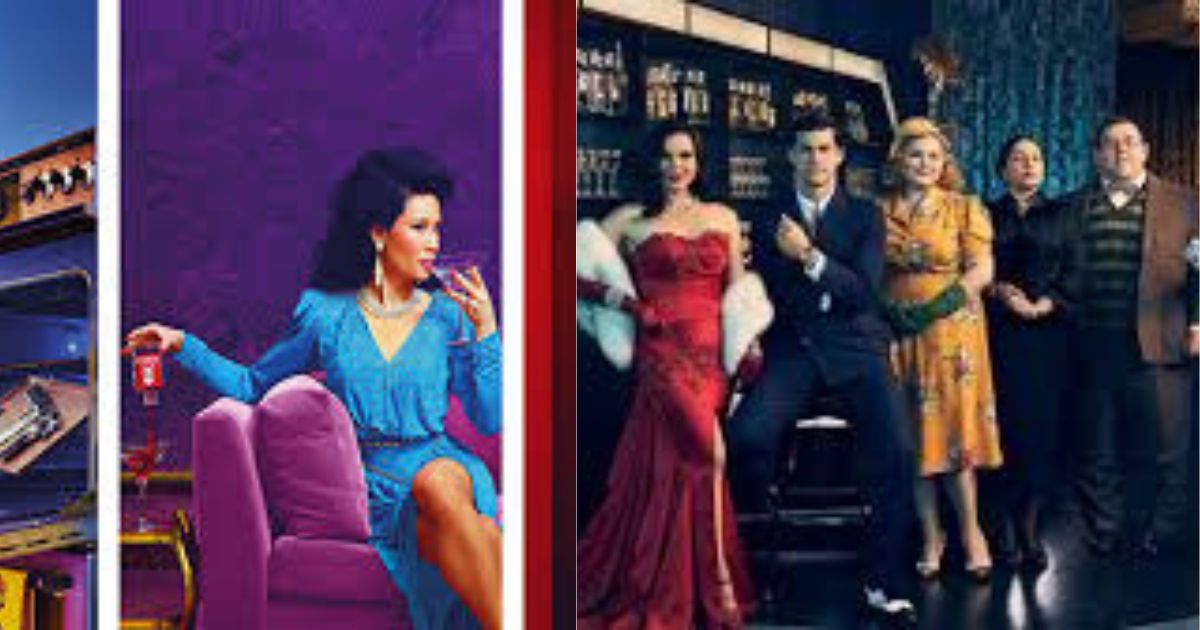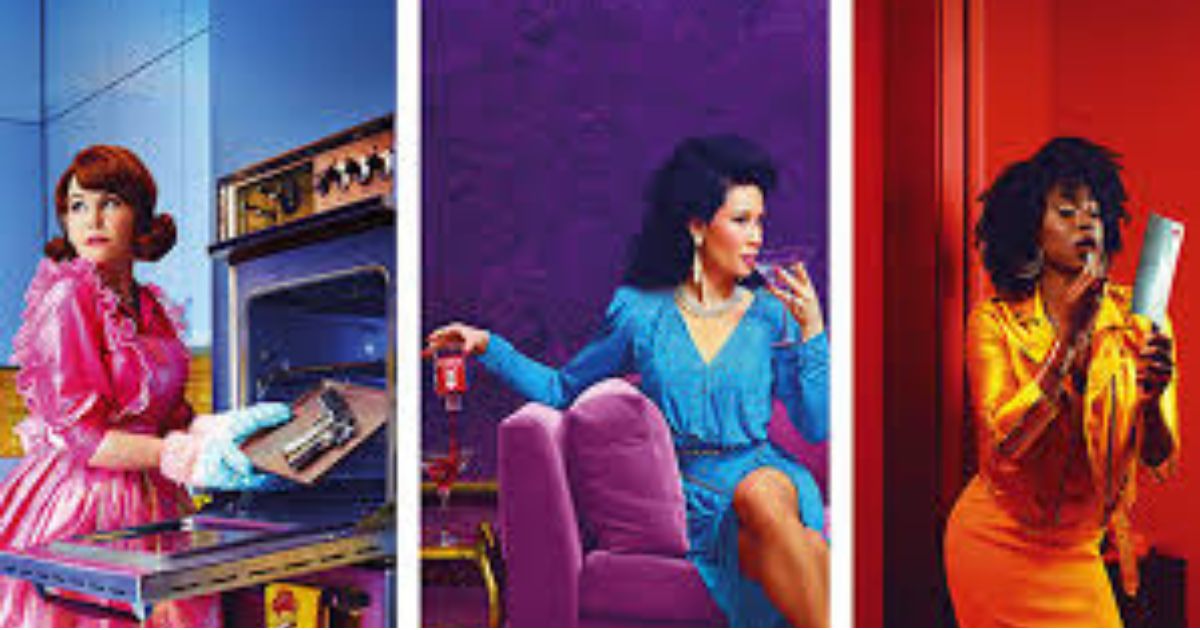From dark comedy to drama and mystery, the series Why Women Kill is one of a kind. From Desperate Housewives creator Marc Cherry, the drama was a multigenerational murder mystery following mothers and daughters living in town seeking balance between love, deceit and loss.
Three time periods, three housewives whose everyday existence is not that pretty picturesque: When CBS results in the second season of Why Women Kill it connects over threatens to fabricate mainly women who profess so rarely hair and murder together.runtime across both seasons allowing a story about why often chilly abodes find their owners desiring all types solace unimaginable ways.
This resonated with viewers turning the anthology series by CBS All Access (which became Paramount+ in March) into an around-the-world phenomenon when it premiered in August 2019. A high-concept drama with stylish cinematography, whip-smart dialogue and sharp character studies, Why Women Kill was a unique marriage of satire and suspense — all rendered with empathy for the complex emotions in human relationships.
Why Women Kill (Season 1): A Trio of Women, Three Different Decades
Set in the same Pasadena mansion but across three decades—1963, 1984 and 2019–the first season of Why Women Kill tackles how those time periods have shaped these women. Their tales—both bearing witness to betrayals at the hands of their husbands—are expertly intertwined into a singular, formidable narrative which serves as an exploration and statement concerning cheating with grace, empowerment in strength.
Beth Ann Stanton (Ginnifer Goodwin) – 1963
Beth Ann is a perfect `60s housewife, living in the lap of suburbanitive luxury with her husband Rob (Sam Jaeger). But when she finds out Rob is cheating on her with waitress April (Sadie Calvano), it all blows up. Beth Ann chooses to befriend April instead of confronting him directly, using their friendship as a way to learn about his infidelity.
Over time, Beth Ann develops from a timid dutiful wife to one that finds some of her desires and independence. The path this takes toward murder is chilling, but also layered with nuance — it’s an act not only of revenge on behalf of others who have been harmed by him in a similar way to how he (presumably) hurt her as a child, paving the grotesque route between betrayal and adultery that led Cathleen there in the first place; its equally about reclaiming something she fundamentally lost when she left Aeolus behind.
Simone Grove (Lucy Liu) – 1984
Simone is a razor sharp tongued socialite with an overabundance of style and confidence. Her husband Karl (an underused Jack Davenport) is also in the closet, didn’t you know. Simone is crushed by the revelation that Karl has cheated on her, and as she forgives him (a choice he poorly repays), we follow Simone through a journey of self’-discovery where she navigates how love not only pays to loyalty but also acceptance.

Simone takes up with someone much younger — Tommy (played by Leo Howard)DllImport In a stunning plot twist, Simone begins seeing … oh yes of course it’s this kid! For Simone, it is a world of opulence overlaid with wealth and beauty marked by profound emotional fragility.
Simone’s story is just heart-wrenching, and yet so powerful in her struggle with betrayal (which honestly could have happened to any of us) while trying to turn down oppressive standards that she puts on herself as a woman.
Taylor Harding (Kirby Howell-Baptiste) – 2019
Taylor, the consummate modern woman type and an attorney whose marriage to aspiring screenwriter Eli (Reid Scott) is of chance-of-threesomes openness. This tests their progressive relationship, as Alicia soon learns Taylor and his lover Jade (Daddario) want her to live with them.
What begins as a setup of Taylor dominating and in control turns to Taylor spiraling out because she gets jealous, because there’s lust, but the emotional chaos heats up. Taylor’s storyline gives Gone a much more modern feel,focusing as it does on the fluidity of sexuality, power in relationships and is simply frustrated bythis push-pull between personal ambition or love.
Why Women Kill: The Interconnected Stories
Even though these women dwell in an era, and universe where things surely look different from the one we know more intimately today, all their tales are woven with threads of betrayal and failure; they represent lives imposed on them by a patriarchal system; what happens when society ceases to nurture? (It does that now again often enough…).
Their tribulations result in evolution: the house is both a stand-in for how women are expected to behave and also, simply, where they live. And the series’ final moments suggest just how much these women are willing to compromise themselves in order to regain control — and under what internal pressures their sense of righteousness can function more like betrayal.
This is where Marc Cherry’s storytelling shines in Why Women Kill, not boiling down to infidelity or getting one over the other woman: What makes these women become killers — And how far can they be pushed until they break?
The show is incredibly clever and satirical on the surface, but so too forms a façade for an increasingly darker look into human psychology. The path of each woman toward murder seems like a totally organic extension of who she is and what drove them there, so it still optionally maybe an empowered/revenge show.
Why Women Kill (Season 2): A Different Take, Same Dark Humor
While the first season of Why Women Kill is an interconnected anthology, season two takes a different approach, focusing on a singular storyline in the 1940s. This shift allowed Cherry to explore new themes while retaining the series’ signature dark humor and wit.
Alma Fillcot (Allison Tolman)
Season two follows the story of Alma Fillcot, seen as an introverted mild mannered housewife who just wants to join the best garden club in town. Alma’s veterinarian husband Bertram (Nick Frost) is euthanizing folks whom he deems as too far gone.
His wife, Alma, however learns of this evil nature in her husband and rather than be repulsed prays on the weak to use as a ladder over anyone else. The deeper Alma sinks into a life of lie and death, the more shocking it is to watch her go from being this shy forgotten lady into someone who was suddenly so capable at spinning lies.
Rita Castillo (Lana Parrilla)
As the leader of a garden club, Rita is glamour-pussy and manipulative* who can’t be more different from Alma. * She cheats on her husband (played by a man significantly older than she) with younger guy, Scooter. As with Alma, Rita’s tale examines how far women are willing to go for power and agency — particularly when they are trapped by societal norms or men in their lives.
Why Women Kill: Themes and Impact
Yet more impressively—as a statement on the human condition, or women living in world that often casts them to one side and looks down upon them — Why Women Kill is far more than just another series about what happens when someone strikes up murder.
It is also a show that revels in its commitment to making statements about class, ambition and the parts we expect men or women to play — consequences be damned. And the reason this episode is so incredibly special,, not only had great writing and acting (mainly by Katee Sackhoff), but because it actually makes us root for complete monsters while they commit these horrific acts.

The show is also very visually rich. The color palette of each season one era is lovingly designed both pastel and conservative 60s, vibrant neon glamour against the darkness of the early AIDS crisis in the ’80s, sharp contemporary hues for its modern day.
The locations here are not just set dressing that adapt to the characters and their internal lives, but provide actual narrative importance in terms of where they live and what limitations society has created.
Conclusion
WHY WOMEN KILL, from Emmy(R)-nominated Executive Producer Marc Cherry (“Desperate Housewives”), is a delicious new drama that follows the lives of three women living in three different decades — a housewife in the ’60s, a socialite in the ’80s and a lawyer in 2018 — each dealing with infidelity in their marriages.
In this regard Marc Cherry is a maestro as his ability to weave mystery into humor kept the show entertaining and emotionally resonant even after all of these years, hence placing it at the cream-of-the-crop in current television. By contrasting the vilest parts of human behavior with biting social commentary, Why Women Kill inspires viewers to ask why anyone—especially women—would kill.

